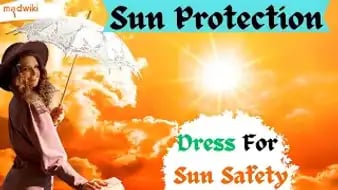Best Sunscreens for oily, dry, normal, and combination skin!
If you are using sunscreen for the first time, you should always choose the broad spectrum sunscreen, which means that it prevents both UVA and UVB sunrays from penetrating the skin and damaging the skin.
UVA rays mainly cause dark spots and aging signs while UVB rays can cause sunburns.
What SPF should I Use?
According to American Dermatology Association, you should use an SPF of 30 or higher.
SPF 15 blocks 93% sunrays while SPF 30 blocks 97% and SPF 50 blocks 98% of sunrays.
What Sunscreen will suit my skin type?
1. If you have a oily skin it means you are more prone to get pimples. So, you should to choose ‘non- comedogenic’ sunscreens which means they don't block or clog your pores, because clogged pores can lead to more pimples.
2. If you have a dry skin, you should apply a moisturizer with your sunscreen or you can also look for sunscreens with moisturizing or hydrating agents such as hyaluronic acid or Shea butter or ceramides.
3. And if you have a sensitive skin, you should look for a physical sunscreen also known as mineral sunscreen. Physical sunscreens contain zinc oxide and titanium dioxide which protects your skin by creating a film-like barrier.
4. If you have a combination skin, you can choose a gel based sunscreen that contains a non- oily hydrating agents such as niacinamide.
5. Lastly, If you have a normal skin, congratulations you are blessed. You can choose any sunscreen that is light weight, gel based and non- greasy.
Source:-
1. Passeron, T., Lim, H. W., Goh, C. L., Kang, H. Y., Ly, F., Morita, A., Ocampo Candiani, J., Puig, S., Schalka, S., Wei, L., Dréno, B., & Krutmann, J. (2021). Photoprotection according to skin phototype and dermatoses: practical recommendations from an expert panel. Journal of the European Academy of Dermatology and Venereology : JEADV, 35(7), 1460–1469. https://doi.org/10.1111/jdv.17242
2. Sander, M., Sander, M., Burbidge, T., & Beecker, J. (2020). The efficacy and safety of sunscreen use for the prevention of skin cancer. CMAJ : Canadian Medical Association journal = journal de l'Association medicale canadienne, 192(50), E1802–E1808. https://doi.org/10.1503/cmaj.201085
3. The science of sunscreen. (2024, June 14). The science of sunscreen. https://www.health.harvard.edu/staying-healthy/the-science-of-sunscreen
This information is not a substitute for medical advice. Consult your healthcare provider before making any changes to your treatment. Do not ignore or delay professional medical advice based on anything you have seen or read on Medwiki.
Find us at:



















.svg)